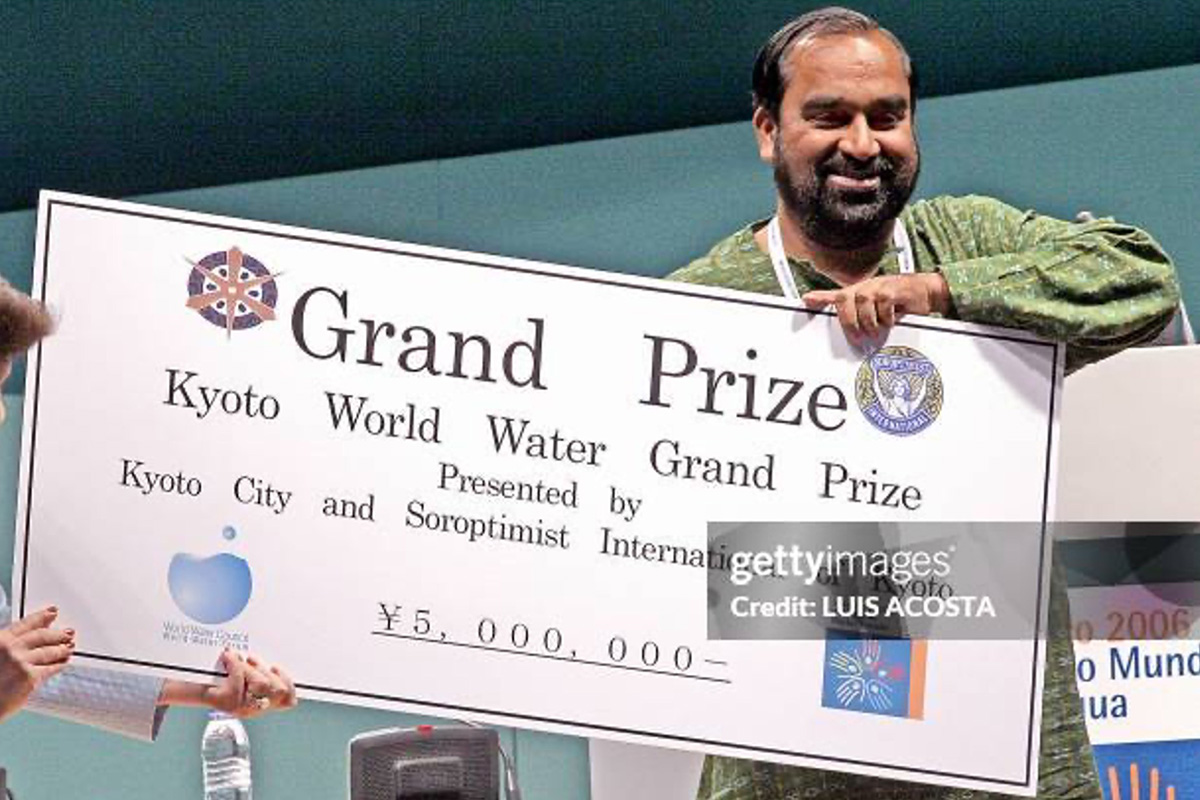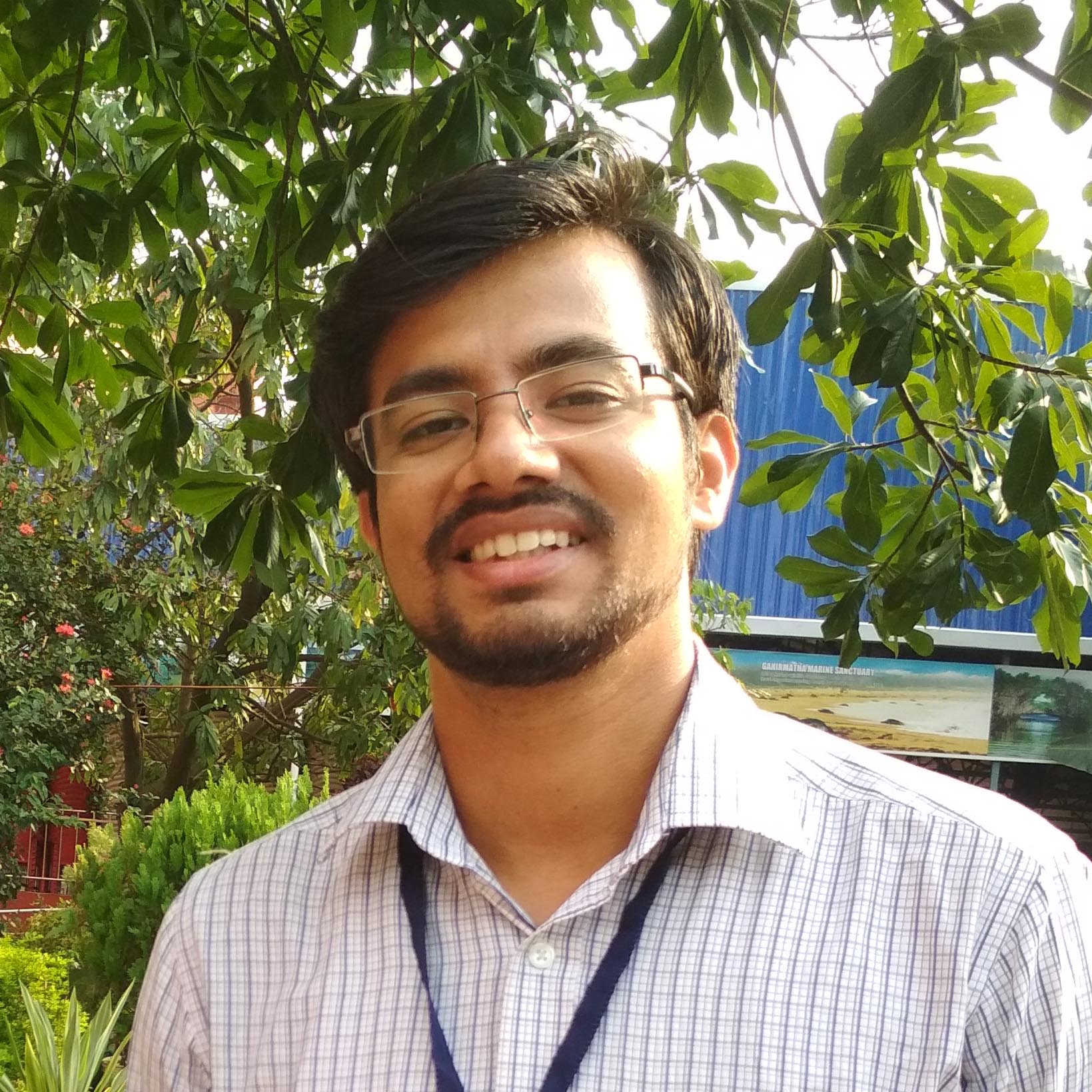Joe Madiath: A Visionary Leader Who Transformed Rural India
April 22by Sameer Misra
Joe Madiath has transformed rural India in a manner that has never been seen before. In addition to improving the lives of hundreds of thousands of people, his work over four decades in relation to water, community development, and sanitization established a global standard for sustainable development. His unique approach involves the community by building capacities and enabling communities to work towards their own empowerment. His work has impacted over 1.2 million indigenous and poor families living in over 8,000 rural areas, with a population of more than 8,000,000.
Given the crucial role of clean drinking water and sanitation for health, Joe emphasized projects of this nature as he understood how successful interventions could vastly improve the lives of marginalized people.
His vision allowed him to take up drinking water and sanitation programs in hundreds of villages, decades before the Government of India called for the need to end Open Defecation. For more than four decades, Joe has worked tirelessly to ensure better lives for the downtrodden. Although his work has been focused on Odisha extensively, Jharkhand, Madhya Pradesh and Andhra Pradesh have also gained from Joe’s vision reaching more than 83,000 households by 2018. His model has also been implemented in parts of Tanzania and The Gambia, both Commonwealth nations. His holistic approach to development has allowed him to engage with village communities, taking up water and sanitation as an entry point and then expanding to livelihoods, village institutions, education, and habitat and technology. Joe has made priceless contributions to the field of water and sanitation, which has inspired thousands of similar projects, in several parts of India and the world.
Born in December, 1950 in Kerala, Joe Madiath as a student, was elected as the President of the Loyola College Students’ Union and founded the Young Students’ Movement for Development (YSMD) to positively harness the student disenchantment prevailing during that period. In 1969 he journeyed across India, Nepal, Bhutan and Sri Lanka on a bicycle for a year.
In 1971, Joe led 400 YSMD volunteers to manage a number of relief camps for refugees from Bangladesh. Later that year, 40 volunteers along with Joe, moved to Orissa state in Eastern India, which was ravaged by cyclone and tidal waves. Joe and a few colleagues decided to stay on in the area after relief work to work as development activists. They moved to Ganjam District in southern Orissa in 1976 on invitation from Government, to initiate development activities among the indigenous communities. This resulted in the establishment of Gram Vikas in 1979.
Since its inception, until the end of June 2014, Joe was the Executive Director and is now the Chairman of Gram Vikas. In 1992, Gram Vikas initiated MANTRA (Movement and Action Network for Transformation of Rural Areas), a community-based sanitation and water supply programme, in which each family in the village builds its own toilet and bathing room, with piped water supply from a common overhead water tank, ensuring 24/7 access to protected piped water supply to all families throughout the year. It aims at holistic and sustainable approach to development based on the participation of 100 per cent of a village’s inhabitants. This program has impacted over 100,000 indigenous and poor families living in over 1700 rural habitations with a population of over 600,000 people.
The following institutional and infrastructure systems were established in the participating villages:
- Twin-pit pour flush toilets and bathing rooms for every family
- A piped water-supply system with a local source (borewell, sanitary well or spring), pumped using electric or solar power or gravity flow into an overhead water reservoir or sump and distributed through two or three taps per family
- A village committee handling the ownership and management of the water and sanitation system
- A village corpus fund with contribution from all families to ensure full coverage at all times and
- A maintenance fund managed by the village committee to pay for the regular upkeep and repairs of the piped water-supply system.
The integrated water and sanitation programme was built on the five principles collectively known as MANTRA. Its approach has since become the basis of Gram Vikas’ work in all sectors. The five principles are – ‘All or none’ – 100 per cent inclusion; ‘Share costs’; ‘Take responsibility’; ‘Participation of all’, ‘Inbuilt financial sustainability’.
Joe focused on water and sanitation as the entry point in the village development work, partnering with village communities to regenerate thousands of hectares of “wasteland, “eliminating open defecation, significantly reducing waterborne disease incidences, building disaster-proof houses, enabling thousands of women to lead village institutions, educate hundreds of girls and impacting tribal marginalized communities.
Gram Vikas and Joe Madiath have received several national and international awards in recognition of their work, including the Kyoto World Water Grand Prize, 2006 at the 4th World Water Forum (by the Kyoto Municipality and the Soroptimist International) and Skoll Award for Social Entrepreneurs 2006 by Skoll Foundation, California for bringing sustainable sanitation and clean water facilities to Indian villages. In 2006, Joe was named ‘Water Champion’ by Asian Development Bank. In 2009 Gram Vikas won the “Best Water NGO Award”. The Rural Health and Environment Programme as a part of holistic development initiated by Joe with clean water access as entry point in the village won the World Habitat Award for successfully demonstrating how communities can be involved in the sustainable and affordable development of their own community infrastructure and housing. Established in 1985, jointly by World Habitat, an independent charity and UN-Habitat, the award identifies and promotes good habitat practices.
Joe is part of Outstanding Social entrepreneurs group selected by Schwab Foundation for Social Entrepreneurship, Geneva and Skoll Foundation, USA. In 2005, he was awarded “Social Lifetime Achievement” Award for his contribution to improving the plight of the rural masses, by “Godfrey Phillips Red & White Bravery Awards.”
He was Chairman of the Working Committee on Water and Sanitation for preparation of the 12th five-year plan for Government of India. Joe Madiath and Gram Vikas have been covered in the book Poor Economics by Abhijit Banerjee and Esther Duflo, two of the 2019 Nobel laureates in Economics.
Joe continues as Chairman of the Governing Board of Gram Vikas and guides the new generation of social workers to carry on the work he began. Gram Vikas continues to actively partner with the Government in its efforts to bring about inclusive development. From 2014 onwards, it supported the Swachh Bharat Mission by mobilizing village communities to join the movement and provided widespread technical and social mobilization support to create Open Defecation Free villages. Now, with the Jal Jeevan Mission (Government of India’s initiative to provide water of a standard quality to rural households), the organization has joined the effort to actualize the dream of piped water supply to every household in the country.
Joe used water and sanitation as an entry point to pioneer to bring every family in a village to build a toilet and bathing room, thus contributing to the dignity of everyone, particularly women. In the drinking water sector, his work remains among the few non-government sector efforts to enable community managed rural water supply systems.
Joe Madiath’s contributions to water security and sanitation have significantly improved the lives of marginalized communities across India and the Commonwealth, enabling them to lead healthier and more dignified lives. His interventions have strengthened public health, economic opportunities, and community resilience, allowing people to work and provide for their families more effectively. His work aligns with the Commonwealth’s commitment to equitable access to water and sanitation, reinforcing shared goals of climate resilience, social equity, and sustainable development.
Awards
Personal recognition
- Asian Development Bank’s Water Champion Award
- Schwab Foundation’s Outstanding Social Entrepreneur
- Godfrey Phillips Red and White Bravery Award – Social Lifetime Achievement Award (2005)
- Doctor of Divinity, honoris causa – Gurukul Lutheran Theological College
- Lok Samman Award (2009)
- Lifetime Achievement Award for Social Work by Parichay Foundation (2016)
Awarded to Gram Vikas
| Year | Title |
| 1995 – 1996 | Alan Shawn Feinstein World Hunger Award |
| 1998 | Dr. K.S. Rao Memorial National Award |
| 2001 | Global Development Network – Japanese Award for Most Innovative Development Project |
| 2003 | World Habitat Award |
| 2003 | Tech Museum Awards Laureate – Accenture Economic Development Award |
| 2006 | Kyoto World Water Grand Prize |
| 2006 | Skoll Award for Social Entrepreneurship |
| 2006 | Winner – Ashoka Changemakers Competition |
| 2009 – 2010 | UNESCO Water Digest Best Water NGO Award |






